Search
Remove Ads
Advertisement
Search Results
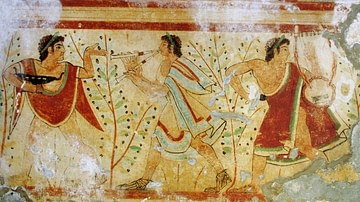
Definition
Tarquinia
Tarquinia (Etruscan name: Tarch'na or Tarch, Roman name: Tarquinii) is a town located on the western coast of central Italy which was an important Etruscan and then Roman settlement. It is famous today as the site of around 200 Etruscan tombs...
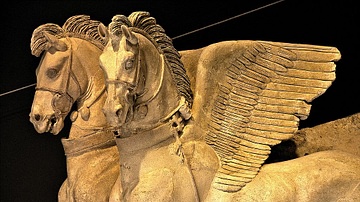
Image
Etruscan Winged-horses, Tarquinia
A pair of terracotta winged-horses from the Temple of the Ara della Regina, Tarquinia. Etruscan, c. 350 BCE. (National Archaeological Museum, Tarquinia, Italy)
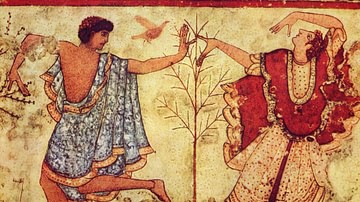
Image
Dancers, Tomb of the Triclinium, Tarquinia
Dancers from the walls of the Etruscan Tomb of the Triclinium, Tarquinia, central Italy. c. 470 BCE.
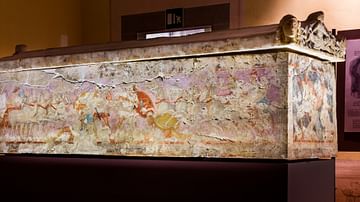
Image
Amazon Sarcophagus, Tarquinia
The "Amazon Sarcophagus", a painted alabaster sarcophagus depicting an Amazonomachy. Etruscan culture. c. 300 BCE. Tarquinia, Italy. (De Feis Etruscan Archaeological Museum)
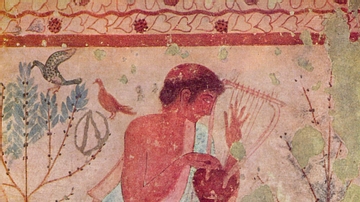
Image
Musician, Tomb of the Triclinium, Tarquinia
A musician from the walls of the Etruscan Tomb of the Triclinium, Tarquinia, central Italy. c. 470 BCE.
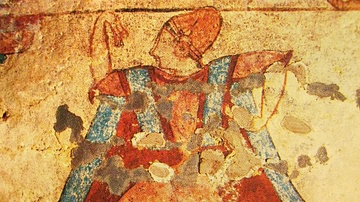
Image
Dancer, Tomb of the Lionesses, Tarquinia
A dancer figure from the Etruscan Tomb of the Lionesses in Tarquinia, central Italy. 520-510 BCE.
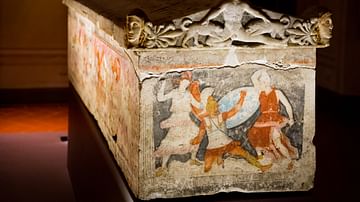
Image
Detail of Amazon Sarcophagus, Tarquinia
Detail of a painted alabaster sarcophagus depicting an Amazonomachy. Etruscan culture. c. 300 BCE. Tarquinia, Italy. (De Feis Etruscan Archaeological Museum)
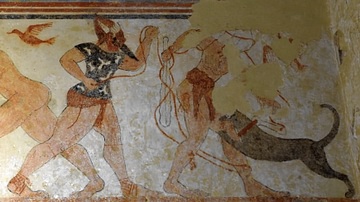
Image
Phersu Game, Tomb of the Augurs, Tarquinia
A wall painting from the Etruscan Tomb of the Augurs at Tarquinia. The scene depicts the figure Phersu, a masked man from multiple Etruscan myths. He leads a "game" in which a man is sent against a dog with a club and a fabric wrapped around...

Image
Tomb of The Lionesses, Tarquinia
A wall-painting from the Etruscan Tomb of the Lionesses (actually panthers) at Tarquinia. In the scene men are reclining on cushions at a drinking party. 530-520 BCE.

Image
Musicians Wall-painting, Tarquinia
A wall-painting from the Etruscan Tomb of the Lionesses (actually panthers) at Tarquinia. In this scene are dancers and musicians. 530-520 BCE.